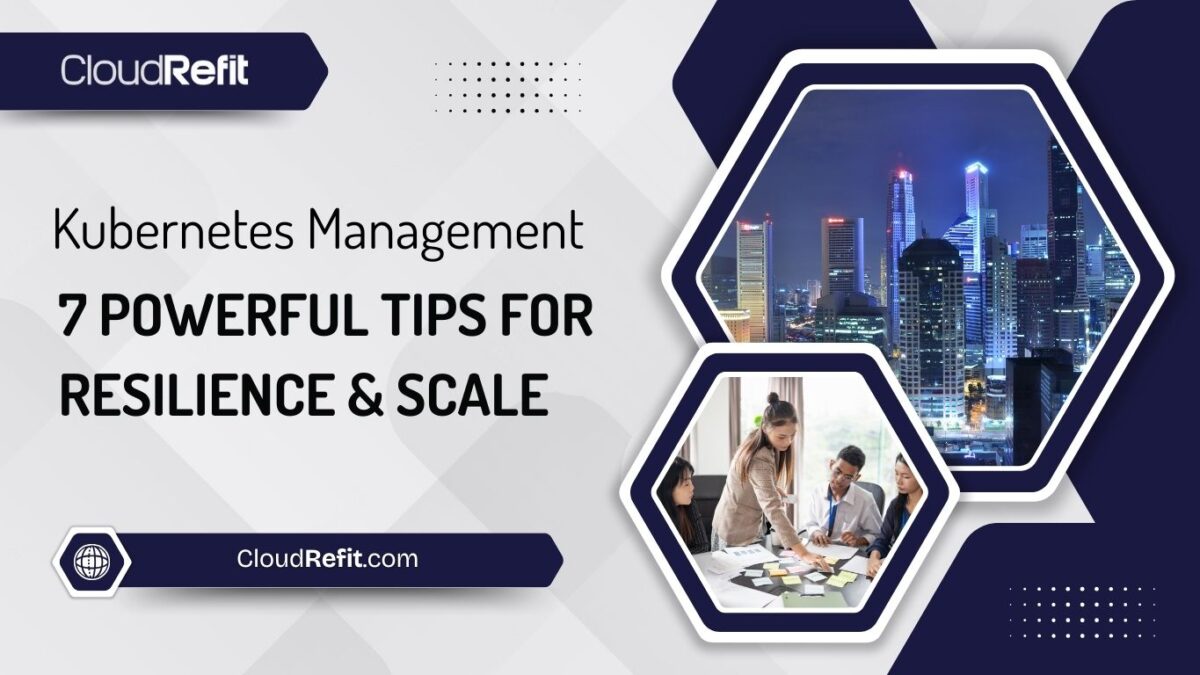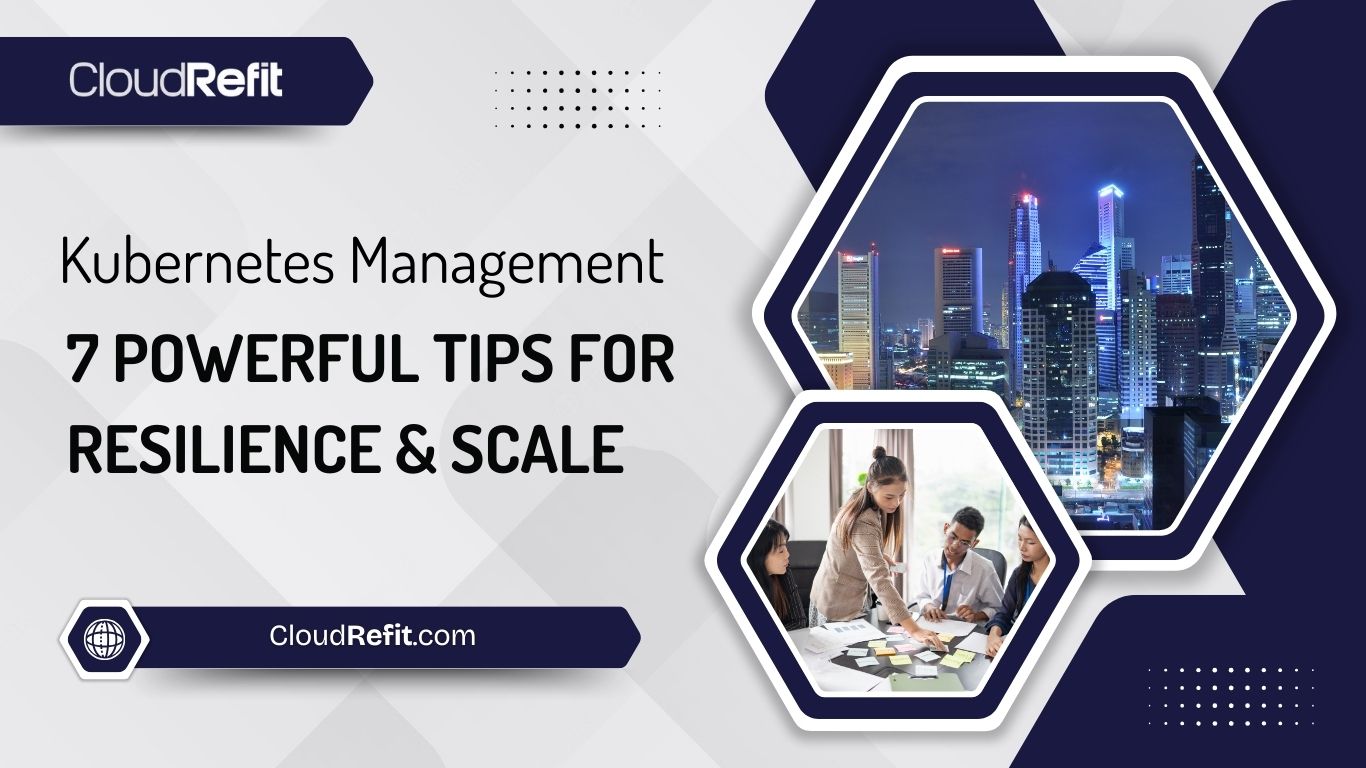Kubernetes has become the backbone of modern application infrastructure. However, managing it efficiently is key to building a scalable and resilient system. In this article, we explore essential Kubernetes management best practices that enable businesses to scale reliably and maintain high availability without unnecessary overhead.

1. Leverage Horizontal Pod Autoscaler (HPA)
One of the cornerstones of efficient Kubernetes management is automated scaling. The Horizontal Pod Autoscaler (HPA) allows you to automatically adjust the number of pods in a deployment based on CPU utilization, memory usage, or even custom application metrics.
- Set appropriate threshold values.
- Continuously test scaling behavior under stress conditions.
2. Adopt GitOps for Safer Deployments
GitOps ensures your Kubernetes manifests (YAML) are version-controlled and auditable.
- Tools like ArgoCD and Flux help automate deployments.
- Guarantees consistency across environments.
3. Monitor with Observability Tools
You can’t manage what you can’t measure.
- Use Prometheus and Grafana to gain deep visibility.
- Track resource utilization and performance bottlenecks.
4. Use Namespaces and QoS Classes to Isolate Workloads
Separate workloads by environment or priority using Namespaces and define Quality of Service (QoS) settings to ensure resource fairness.
5. Enable Node Auto-Scaling in Your Cloud Provider
Activate Cluster Autoscaler in AWS, GCP, or Azure to dynamically add/remove nodes based on demand.
- Cost-effective and responsive to traffic spikes.
- Helps avoid over-provisioning.
6. Prepare for Failure with Self-Healing Strategies
Ensure your applications can recover quickly.
- Use Liveness and Readiness Probes.
- Set up automatic restarts and re-deployments.
Conclusion
Mastering Kubernetes management is about more than automation—it’s about building a cloud-native architecture that’s efficient, scalable, and resilient. By implementing these best practices, startups and enterprises alike can optimize their infrastructure and reduce operational risk.
📩 Need help implementing Kubernetes Auto-Scaling? Talk to a CloudRefit expert today.

